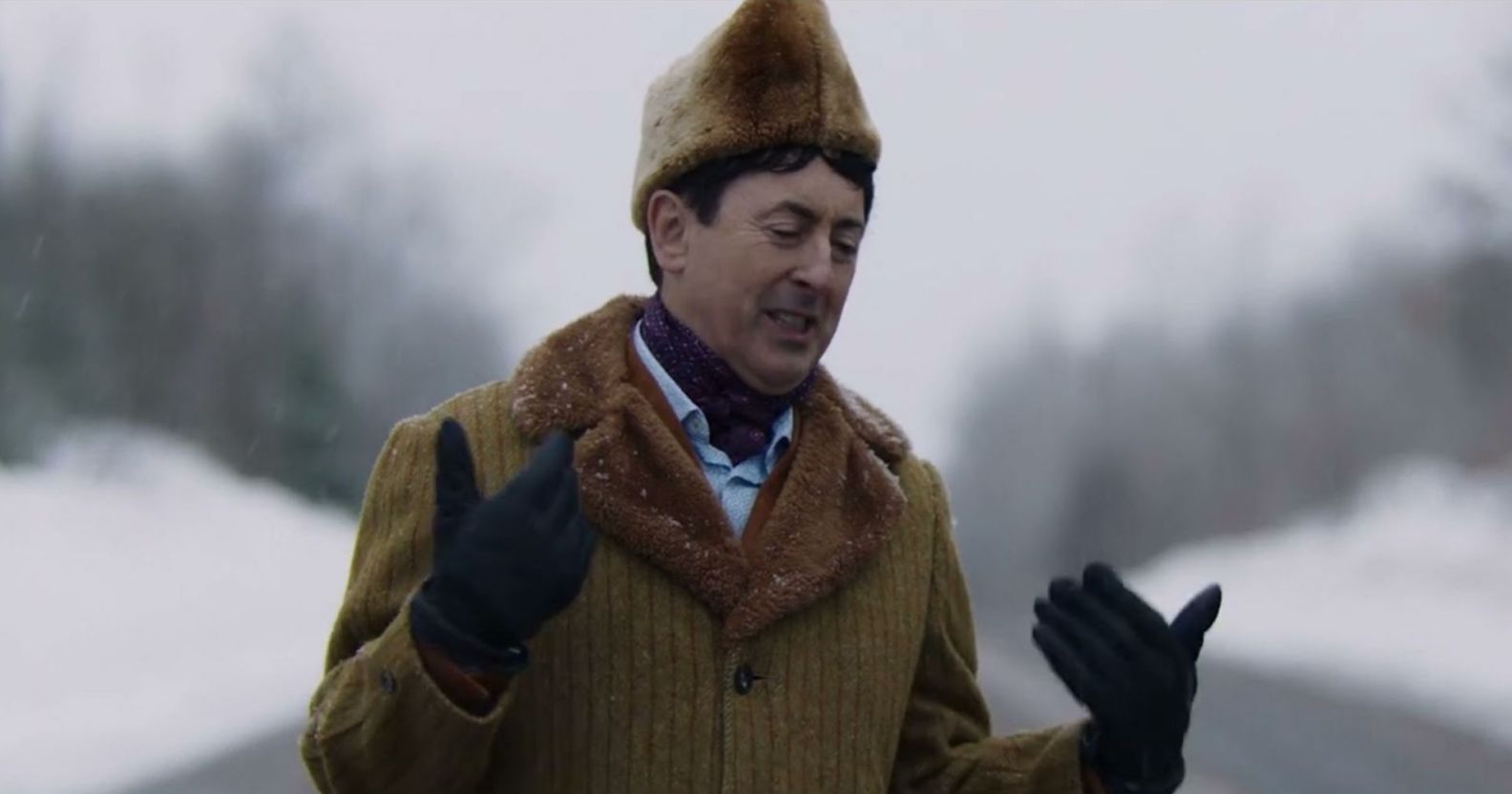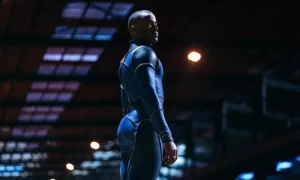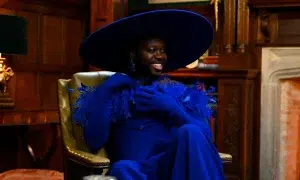In Drive Back Home, a powerful new period drama that screened at this year’s BFI Flare: London LGBTIQ+ Film Festival, Canadian filmmaker Michael Clowater brings a deeply personal family story to the screen, with award-winning actor Alan Cumming and Charlie Creed-Miles portraying estranged brothers forced to reconnect during an emotional road trip.
The film, rooted in Clowater’s own family history, draws inspiration from a story he heard growing up: that in the 1950s, his uncle Hedley was arrested, and his grandfather Ernie—a working-class plumber with no formal education—somehow managed to get him released. It was only after Clowater began researching Canada’s historical treatment of LGBTQ+ individuals that the broader picture emerged.
“At that time, it was illegal to be gay. You could go to jail for years,” Clowater said during a Q&A at BFI Flare in March. “But at police stations… if they saw [the incident] as victimless, they would try to get it out of their system.”
According to Clowater, police often called family members or employers to retrieve men caught engaging in same-sex activity, effectively outing them and subjecting them to public shame. “You’re not going to jail,” Clowater explained, “but you’re still punished appropriately. That, to me, was cruelty.”
A Fictional Tale with Real Roots
While Drive Back Home is inspired by Hedley and Ernie’s experience, much of the plot is fictional. Alan Cumming stars as Perley, a proud and flamboyant man arrested in 1950s Toronto after being caught with another man in a public park. Instead of a prison sentence, he’s picked up by his estranged brother Weldon, played by Wild Bill actor Charlie Creed-Miles.
What follows is a near 1,000-mile road trip to New Brunswick, with Weldon behind the wheel and Perley clutching a taxidermy pet dog. Along the journey, the two brothers confront old wounds, including childhood abuse at the hands of their father and the life-altering choices that drove them apart.
“I wanted to trap these two brothers who didn’t understand each other in a truck for three days,” Clowater said. “They begin to see each other, finally.” The dynamic mirrors the strained relationship between Clowater’s uncle and grandfather, which, over time, required healing.
Performance Rooted in Personal Experience
Cumming delivers a performance that is both defiant and deeply vulnerable. His portrayal of Perley is marked by sharp wit and emotional restraint, characteristics that Clowater believes reflect his own great-uncle’s lived reality. “You have to have a strength to survive at that time,” Clowater noted. “His whole being was about armor.”
Cumming, known for his roles in The Good Wife, Cabaret, and more recently as host of The Traitors, was chosen in part because of the parallels between his personal story and that of Perley. In his 2014 memoir Not My Father’s Son, Cumming detailed the physical and emotional abuse he endured during his childhood in rural Scotland.
“When I read his book, I just thought, ‘This is the guy,’” Clowater said. “He’s from a very rural part of Scotland and his father was abusive and not accepting of him. I think he really saw a lot of himself in the story.” Cumming agreed, saying he felt an immediate connection to the role.
Creed-Miles, too, was struck by the intensity of Cumming’s performance. “It just feels like he was made to play that role,” he said. “I know how much he put into that emotionally and professionally. I felt very privileged to be working alongside him.”
A Story of Reconciliation, Not Labels
Though Drive Back Home centers on a queer character, Clowater hesitates to call it a queer film. “It’s a love story between two brothers who are trying to figure out how to love each other when they don’t really like each other,” he said. Still, the narrative is steeped in the painful history of LGBTQ+ oppression and the trauma of being forcibly outed.
The film’s emotional climax is punctuated by an act of violence, drawn from a real-life incident that occurred at Clowater’s high school. This moment, while harrowing, becomes a catalyst for connection between the brothers.
For Clowater, telling stories like Drive Back Home is more than artistic expression—it’s an act of remembrance. “It’s the same thing as World War II. Once you have generations that start to forget that, that’s when hate comes,” he said. “Men like my great-uncle lived through this. That’s how you prevent it from happening again. And unfortunately, I think it is starting to happen again.”
He didn’t elaborate, but the implications were clear. Across North America and beyond, LGBTQ+ rights are being challenged in legislation, media, and public discourse.
“In a weird way, it makes me think stories like this are even more important,” he said.
Drive Back Home stands as a moving tribute to family, resilience, and the necessity of facing the past to move forward. With standout performances from Cumming and Creed-Miles, and a hauntingly relevant message at its core, Clowater’s debut feature is both a historical reckoning and a deeply human story about the long road to understanding.







